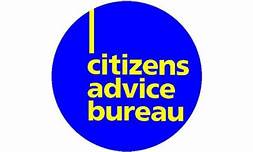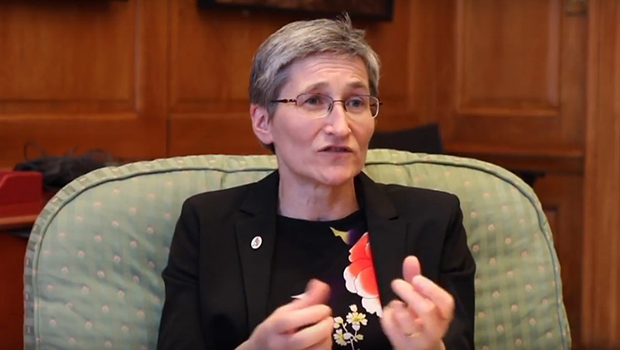Increasing numbers of private tenants are turning to Citizens Advice for help, just as the protections put in place for renters during the pandemic come to an end in England. Citizens Advice’s online housing advice has been viewed over 2 million times in the first four months of the year.

In England, the ban on most bailiff-enforced evictions comes to an end on Monday [31 May], while the notice period landlords need to give their tenants will be reduced from six to four months.
This comes as Citizens Advice data shows a 17% increase in people with issues about being evicted from their private rented accommodation, comparing January – April 2021 with January – April 2020. There has been a 36% increase in the number of people seeking help with all types of problem in the private rented sector (31,700 in January – April 2021 vs 23,400 people in January – April 2020)
Polling conducted by ICM Unlimited for Citizens Advice also shows that, in the UK:
-
Almost 1 in 10 private renters (8%) are behind on their rent. This equates to over 350,000 tenants across the country.
-
The average amount of arrears owed has risen by 24% in the last few months from £730 in November 2020 to £907 in April 2021.
Advice
Citizens Advice’s Senior Housing Expert Amy Hughes answers the most common questions from private tenants in England about the end of the ban on eviction proceedings:
-
Can tenants be evicted immediately?
“No – for most private tenants, only those at the end of a long legal process will face imminent eviction. Then there is still 14 days’ notice before the final stage, which is the bailiffs attending.
“A landlord who carries out or threatens an eviction without following this process is likely to commit a criminal offence.”

-
If a tenant is issued with a notice seeking possession by their landlord, what should they do?
“The first thing is to get some advice about whether the notice is valid, or any help that might be available.
“A landlord notice is step one – it doesn’t mean an eviction can go ahead. If the landlord doesn’t follow the process to the letter of the law tenants may be able to successfully fight an eviction.
“If that’s not possible, a court may make an order for possession. Only when the date set for possession by the court has passed, can the landlord apply for bailiffs to carry out an eviction.
““This stage is also an opportunity for both sides to sort out their differences.”
-
What should tenants do if they’ve already received a notice that an eviction will be carried out by bailiffs?
“There were some circumstances in which evictions were allowed to take place while the ban was in place – including more than six months of rent arrears. But if you are being evicted due to one of these reasons, you will still get 14 days’ notice.
“Once again, seek advice. In some cases the local council will have a duty to provide alternative accommodation. Citizens Advice and other housing charities can also help people find an alternative place to live, or even delay the eviction at this late stage.”

Kiara’s Story: “It was not my fault I was made redundant…I am barely getting by”
Kiara*, who came to Citizens Advice for help, had worked in an administration role for a number of years. When Covid-19 struck, her workload decreased and her employer made her redundant. Since losing her job, she has been looking and applying for many jobs, so far without success. She is a single parent of three young children.
When she told her landlord that she was no longer working, they refused to renew her tenancy and she was soon issued with a ‘Section 21’ notice – a so-called no fault eviction. Worried about the prospect of being thrown out of her house, she contacted her local council for homelessness help and Kiara and her children were able to secure emergency accommodation before finding somewhere to live permanently.

Kiara said:
“When I told my landlord that I was no longer working they said that they would not be able to renew my tenancy as I no longer earned enough to cover the rent. Universal Credit caps the amount that they pay, so I would always be in arrears. I later received a Section 21 notice to leave the property.
“I was so upset as it was not my fault that I had been made redundant or that the housing element of Universal Credit is capped.
“I have three small children, no family to rely on and really did not know what I was going to do. I was really stressed out as first I was made redundant and then I was losing my home.
“It’s a really difficult situation as my income has dropped dramatically and I am barely getting by. I have had to ask for help from local charities who have been really supportive and helped provide me with essentials such as clothes and food.”
Citizens Advice fears that, with the ban on evictions coming to an end, stories like Kiara’s will become more common.
The charity is calling on the Westminster government to provide a package of financial support, delivered through grants and government-backed loans, for renters in England facing arrears due to the economic effects of the pandemic.

Dame Clare Moriarty, Chief Executive of Citizens Advice, said:
“Next week, the sticking plaster applied to the English private rented sector during the pandemic will be ripped off. Ending the eviction ban puts thousands of renters at risk of losing their home. The government should put in place a system of grants and government-backed loans for renters in England who are still financially struggling because of Covid-19.
“The lack of security renters in England will face from Monday is a symptom of a longer term problem where tenants can be evicted without cause. The government has committed to ending no-fault evictions and it’s vital this is urgently enshrined in law in their forthcoming reforms to the private rented sector. “

